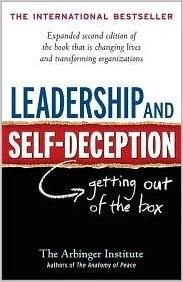Leadership and Self-Deception
The book Leadership and Self Deception: Getting Out of the Box by The Arbinger Institute was a wake-up call for me. The deception is this: because my self-talk is I care my actions show I care.
Not so fast.
When giving presentations I challenge leaders to give me an example of how they showed someone they cared about them…and no, a paycheck doesn’t count. Usually a great deal of silence follows as they explore their memories for such an example. Some will talk about how they showed up for employees facing medical or family situations. For the rest, like it was for me, it is a wake-up call. We get our deception.
Unfortunately, when we run 75 miles an hour, it’s hard to show people we care for them because heck, we don’t even show ourselves we care for ourselves. We become numb and we engage in ongoing criticism as supposed to anything positive.
Check your head: when is the last time you showed somebody at work you care about them?
Go into your day intending to show people you care about them. How can you do that? Some ideas:
- Check in with any family concerns.
- Check in with how they are doing at work.
- Tell them something you admire about them.
- Listen to them with full presence.
- Go to lunch or take a walk with them.
- Write a personal note.
How will you show somebody you care about them today? Please share your ideas in the comments below.





